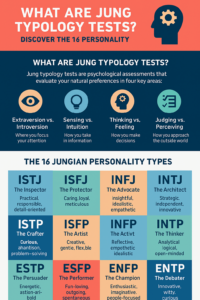Feeling Guilty Without Being Guilty: The Psychosomatic Link Between Guilt and Migraines
Migraines affect millions worldwide and often feel like a heavy burden due to their painful symptoms and the limitations they place on daily life. While various biological and neurological factors can cause migraines, a powerful, often overlooked aspect is the role of our emotions, particularly guilt and self-criticism. Through the lens of psychosomatics—a field exploring the connection between mind and body—migraines, especially those tied to feelings of guilt without a concrete cause, can become more understandable. Below, we’ll explore how emotional states like guilt can impact physical health, create chronic pain, and lead to migraines, along with practical ways to manage these feelings to improve overall well-being.
How Guilt Without Cause Links to Headaches
Headaches, especially those tied to tension or stress, can often result from self-imposed expectations and guilt. A person might believe they need to be smarter, faster, or more perfect in their tasks. If they feel they’re falling short, their body may respond with physical symptoms. The mental strain of trying to be “better” can weigh heavily, leading to headaches.
One example of this would be a person who receives constructive criticism at work. Although the feedback may be minor, they begin to overthink and feel guilty. This guilt turns into an internal dialogue where they wish they had been smarter or more careful, which can intensify mental stress and trigger a headache. It’s as if, without realizing it, they’ve demanded an unreasonable level of performance from themselves.
➡️ “Headaches can be linked to the fact that a person demands too much from themselves.”
However, the type of demands we place on ourselves plays a role in how the body responds. If the pressure is more intellectual than physical, it is the brain and mind that bear the brunt of this stress rather than the musculoskeletal system. When stress and pressure go unrelieved, they can contribute to headaches and, over time, chronic migraines. Psychosomatic theory emphasizes that when we stress our intellectual capabilities or focus too much on “being perfect,” it impacts our mental and physical state.
Migraines and Deeper Emotional Conflicts
Migraines are often more intense than regular headaches and are linked to even deeper conflicts within a person’s psyche. Psychosomatic perspectives suggest that these headaches are not just stress-induced but reflect underlying emotional struggles, often tied to self-worth and the fear of not being enough. For example, if someone faced pressure to excel academically as a child, they may have internalized the idea that intellectual success is the only way to earn love or respect. Now, as adults, any perceived shortcoming or mistake may trigger intense self-criticism, which eventually leads to a migraine.
👉 “When we talk about migraines, it’s already a deeper conflict, affecting aspects of your personality.”
This internalized guilt can create a cycle where self-criticism is a common response to stress. Each instance of stress is met with thoughts like, “I should have known better,” or, “I’m not good enough.” Such negative self-talk puts immense pressure on the mind and can lead to chronic migraines, as the body manifests this internal struggle in physical pain.
The Role of Childhood and Self-Criticism
Our past experiences often shape how we respond to guilt and criticism. For many people, early experiences where they were criticized or judged can lead to a lifetime of feeling inadequate or undeserving. Childhood experiences that pressured us to meet high intellectual standards or linked our value to performance can leave a lasting impression, often manifesting as guilt whenever we perceive a shortfall.
🧠 “Perhaps in childhood, you faced some pressure related to the intellectual sphere.”
If this pressure was deeply ingrained, it could create an ongoing pattern of self-criticism where individuals are unable to praise themselves for their accomplishments. Instead, they focus only on their perceived faults. Migraines, then, become a physical manifestation of this self-doubt and guilt.
Steps to Manage Psychosomatic Migraines
Fortunately, once we recognize the emotional roots of guilt-induced migraines, we can take steps to address and manage them. A few effective methods include:
- Recognizing the Source of Guilt
It’s essential to pause and ask, “Why am I feeling guilty?” Understanding whether the guilt is rational or an overreaction can help in processing it in a healthier way. - Self-Compassion and Positive Self-Talk
Practicing self-compassion can be incredibly beneficial. Allowing yourself to praise accomplishments, no matter how small, creates a counterbalance to self-criticism. Engaging in positive self-talk and acknowledging your achievements can help break the cycle of guilt and migraines. - Therapy and Counseling
Professional help, such as cognitive-behavioral therapy, is effective in identifying and addressing the patterns of guilt and self-criticism that lead to psychosomatic symptoms. A therapist can work with you to replace negative self-talk with constructive thinking. - Mindfulness and Relaxation Techniques
Techniques such as meditation, deep breathing, or progressive muscle relaxation can reduce stress, helping to relieve the physical symptoms of migraines and minimize emotional stress.
☝️ “In my practice, there are many cases where simply understanding this mechanism helped a person start loving and praising themselves, shift their thoughts, and their headaches subsided.”
When managing psychosomatic migraines, it’s crucial to address the root causes of stress and guilt to alleviate their physical manifestations. For many, the journey involves healing childhood patterns, re-evaluating self-worth, and giving oneself permission to let go of unrealistic expectations.
When Deeper Help is Needed
In some cases, the roots of these migraines go even deeper. In situations where there is a history of severe emotional or psychological trauma, or when migraines become chronic, a more intensive approach may be required. Neurological conditions, tumors, or other serious illnesses require specialist intervention. Professional mental health support can also provide a safe space to explore and work through deep-seated feelings of guilt, especially when they are causing chronic physical symptoms.
📌 “Remember, the feeling of guilt can be strong and sometimes we can’t handle it on our own.”
Understanding that we don’t have to navigate these feelings alone is crucial. Seeking help, whether from friends, family, or a mental health professional, can be the first step toward a life free from guilt-induced migraines.
Embracing a Guilt-Free Mindset
Migraines can be deeply debilitating, but recognizing their link to guilt and self-criticism offers a path toward relief. Understanding the “guilt without being guilty” mechanism enables individuals to reframe their expectations, let go of unrealistic pressures, and practice self-compassion. By addressing the root causes of guilt and nurturing a more compassionate self-view, many people find that both their physical and mental health improve.
Migraines, in this sense, serve as a reminder of the powerful link between mind and body and the importance of acknowledging and managing our emotions. Embracing self-acceptance, reducing self-criticism, and recognizing our worth can bring relief from migraines and create a healthier, more fulfilling life.
Here are some useful resources on the relationship between migraines, guilt, and psychological factors that may deepen your understanding for the Psychosomatic Link Between Guilt and Migraines:
- American Migraine Foundation provides information on how stress, guilt, and self-criticism can exacerbate migraines. They delve into how emotional stress can increase migraine frequency and how tools like relaxation techniques, cognitive restructuring, and mindfulness practices can help manage symptoms by reducing psychological triggers. Read more on their siteAmerican Migraine Foundation.
- Psychology Today’s articles explore how psychological factors like unprocessed guilt or stress can manifest physically as headaches or migraines. The platform offers insights into psychosomatic symptoms, as well as treatment approaches like cognitive-behavioral therapy (CBT) for managing guilt-related pain triggers. Visit Psychology Today’s website for articles on psychosomatic migraines and therapy approachesPsychology Today.
- Neurolaunch covers the relationship between PTSD and migraines, examining how emotional distress from guilt and other triggers can increase vulnerability to migraines. They explain how sleep disturbances, heightened stress responses, and hormone changes linked to psychological stress are migraine triggers that can sometimes require specialized interventions. More on this can be found hereNeuroLaunch.com.















7 comments